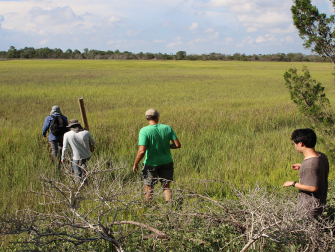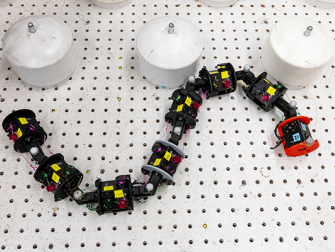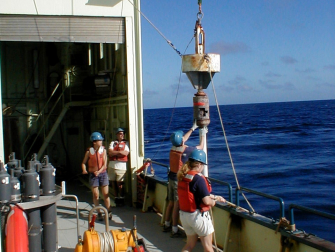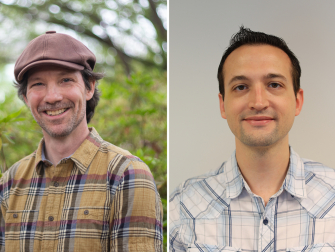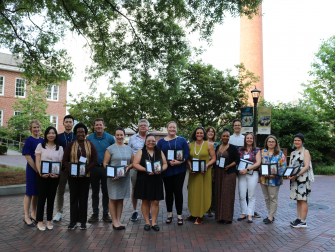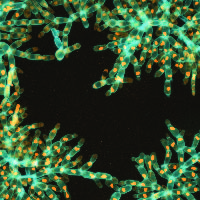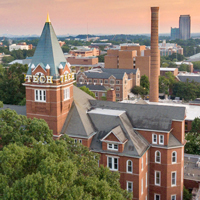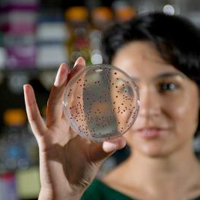College of Sciences

The College of Sciences at Georgia Tech cultivates curiosity, encourages exploration, and fosters innovation to develop leaders and scientific solutions for a better world. Discover more.
Experts In The News
Researchers at Georgia Tech analyzed the weakening of ocean currents and how it could affect ocean life. A report published by Science studied the reaction of ocean currents to climate change, resulting in a potential decline in biological activity and nutrients in the North Atlantic. Using empirical data led by Jean Lynch-Stieglitz, chair of the School of Earth and Atmospheric Sciences, the study observed the sediments at the Gulf Stream's origin. The region plays an important role in the North Atlantic's biological activity, particularly the ocean currents that could weaken due to greenhouse gas emissions and climate change. (This also appeared at Phys.org.)
Nature World News May 13, 2024Forecasters are predicting a busy Atlantic hurricane season. The projections point to a potential weather double-whammy, said Zachary Handlos, senior academic professional at the School of Earth and Atmospheric Sciences. “The forecasts are expecting a higher frequency of storms this year, potentially aligned with record-breaking years like 2020 and 2005,” he noted. “But then on top of that there's a high chance of a few major hurricanes that could be thrown in the mix of all the named storms.”
Thirty named storms formed in 2020. Fifteen Atlantic cyclones became hurricanes in 2005 including Katrina, which caused nearly $200 billion in damage and led to more than 1,800 deaths. Both seasons were influenced by La Niña patterns, which involve the cooling of tropical Pacific waters but lead to a reduction in vertical wind shear that acts as a brake against Atlantic hurricanes. This year, warming Atlantic waters and the expected arrival of a La Niña pattern are driving expectations for a hyperactive hurricane season. “The waters are already warmer than usual in the Atlantic, and warm water is a key ingredient for kind of starting off and forming hurricanes,” Handlos said. “If you mix that trend on top of the possible La Niña setup, it's just a potential recipe for disaster.”
Savannah Now May 13, 2024In a recent paper in the Proceedings of the National Academy of Sciences, School of Biological Sciences Associate Professor William Ratcliff and Emma Bingham, student in the Interdisciplinary Graduate Program in Quantitative Biosciences, put forward a brand new idea, which they tested in a computational model. Bingham and Ratcliff suggest that the way prokaryotic and eukaryotic genomes respond to population size may make or break their chances of evolving multicellularity. It’s a fascinating hypothesis, and if further work bears it out, it could fundamentally change how scientists conceive of this transition and challenge a key assumption they make about evolutionary forces.
Quanta Magazine May 2, 2024
